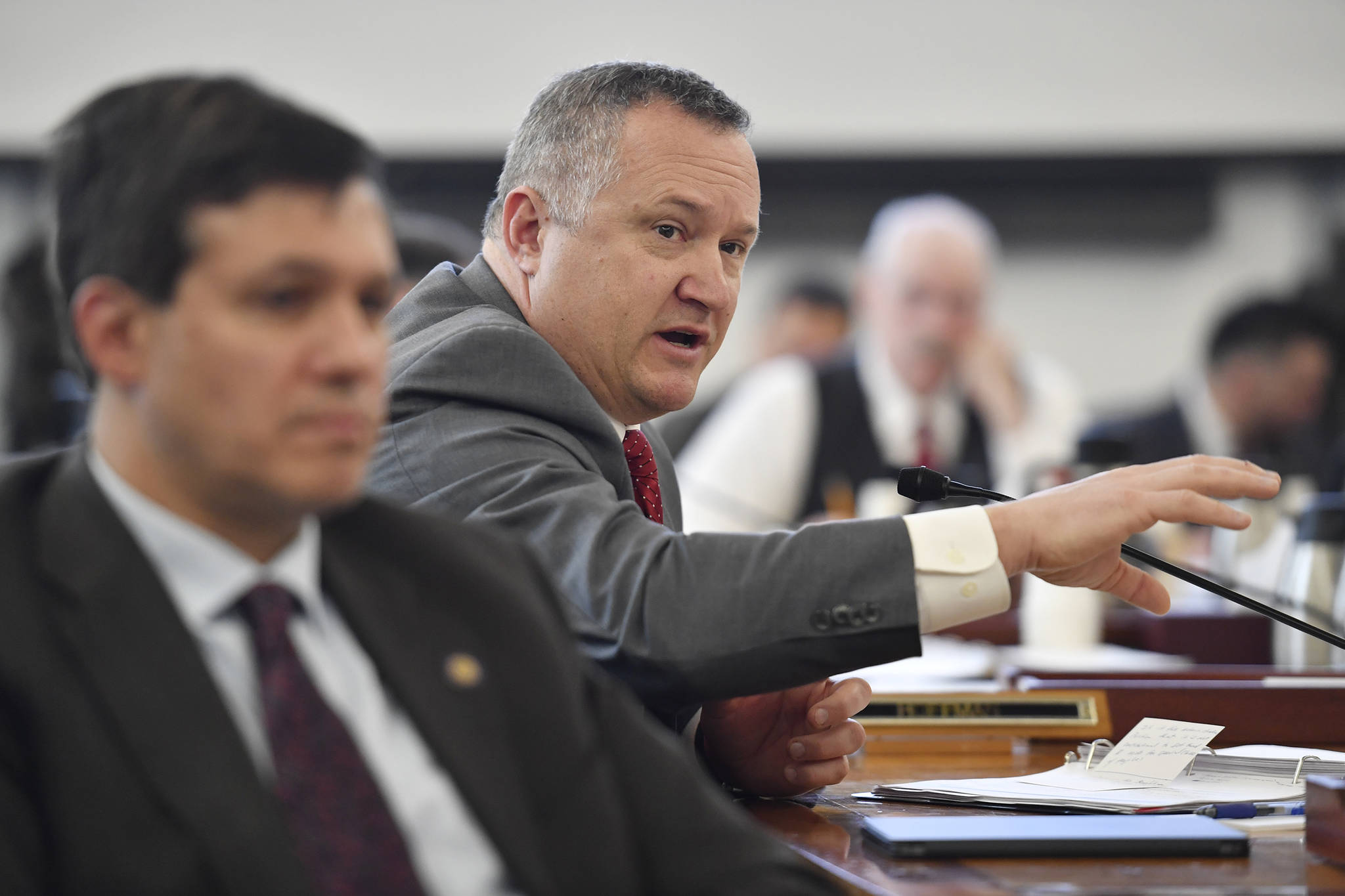The state of Alaska has failed at addressing recidivism, but not for lack of trying, said Sen. Mike Shower, R-Wasilla.
Recidivism is an issue Shower and others on the Senate Finance Corrections Subcommittee want to see improved. Lora Reinbold, R-Eagle River; and Scott Kawasaki, D-Fairbanks are on the subcommittee too.
“One of the things I think we realized, is we did not do a good job setting people up for success when they get out of prison,” Shower said during a Wednesday night Finance Corrections Subcommittee meeting. “And that’s something we’re going to have to do better of if we want to get recidivism down.”
During the meeting, the subcommittee went through Department of Corrections budget numbers and discussed issues within the DOC.
[Senators baffled at proposed reductions to public safety departments]
Recidivism, in general terms, is the rate at which people re-offend and return to jail. In Alaska, recidivism is defined by a statute and it only looks at a three-year window of time. Shower took issue with that. Reinbold said the varying definitions of recidivism is one of her “pet peeves.”
Shower said two-thirds of prior offenders will commit a crime and return to jail in Alaska, but after a look at the larger picture, a nine-year window of time, 88 percent of offenders recidivate. Both Shower and Reinbold expressed a desire change the definition of recidivism in hopes of improving crime data.
The Department of Corrections is one of the few departments that is expecting a budget increase in 2020. This is because every legislator and Gov. Mike Dunleavy agree that public safety must be improved. Housing inmates accounts for about 75 percent of the DOC’s $239 million budget. Supervised release programs release makes up about 17 percent of the budget. Reformative programs such as education and vocational programs for inmates account for about 7 percent of the DOC’s expenses.
At one point in the Shower posed a question for the record about reformative programs that help reduce recidivism.
“What program costs are we going to have to incur to try and make those better?” he asked.
Senate Bill 32
Senate Bill 32, which proposes to increase prison sentences for many crimes, would cost the state an additional $38 million to house additional inmates.
Reinbold, who referred to herself as “Mrs. Budget Hawk, budget cutter,” said she looked at the fiscal note attached to SB 32 “pretty darn close.”
“I think $38 million is absolutely worth it,” Reinbold said.
• Contact reporter Kevin Baird at 523-2258 or kbaird@juneauempire.com. Follow him on Twitter at @alaska_kev.

